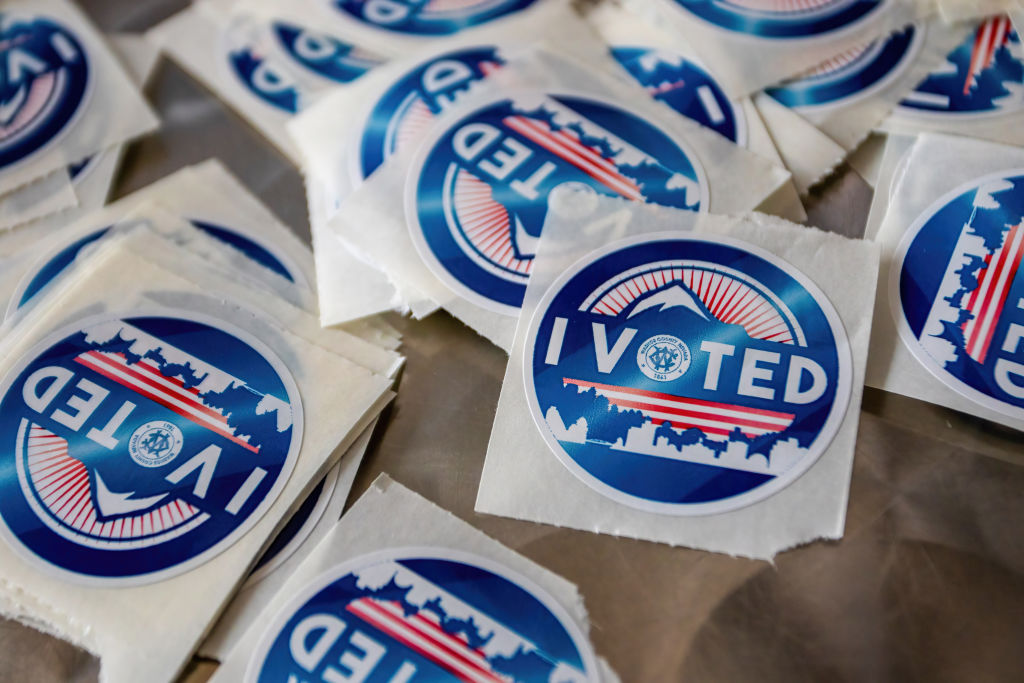Op-Ed: Voter Purges Increasing Across South, We Must Stop Them
Op-Ed: Voter Purges Are Increasing Across The South. We Must Put A Stop To The Practice

Source: SOPA Images / Getty
When thinking of voter suppression, many people think of inequitable and unfair redistricting processes that prevent communities of color from electing candidates of choice. Other people think of inadequate polling place resources that cause voters to wait in inexplicably long lines. Others think of the abrupt closure of polling sites, intimidation at the polls or cuts to early voting periods. Of all the tactics, we cannot forget the harm that voter purges are creating.
Removing voters from rolls when they become ineligible is necessary, but what is happening in many Southern states – states with a history of voting discrimination – is sobering. The Brennan Center for Justice found that “Over the last decade, jurisdictions have substantially increased the rate at which they purge voter rolls” and “between 2014 and 2016, states removed almost 16 million voters from the rolls — a 33 percent increase over the period between 2006 and 2008. The increase was highest in states with a history of voting discrimination.”
These purges have been happening across the South for some time, but not until the Supreme Court Case Husted v. A. Philip Randolph Institute has the highest court made the practice legal, giving states the right to be unaccountable to Black and brown people. This is more than a matter of maintaining good rolls – voter purges are a far-right strategy to win elections and silence Black and brown voters.
To be clear: Voter purges are an unethical use of power that removes citizens’ right to vote. One of the reasons offered for removing voters – at least, in Georgia – is that the voters didn’t vote or didn’t vote in two previous election cycles. However, the right to vote is not dependent on the number of elections in which a person votes. In other words, not using one’s right to vote should not allow the state to take said right away.
Black women have been pushing back
Black women organizers across the South have been pushing back on this nefarious voter suppression tactic. Since 2021, Memphis Artists for Change has embarked on a Swerve the Purge campaign, which aims to address the over 100,000 Shelby County residents who have been purged without notification. With 1 in 5 (20%) Black Tennesseans unable to vote, the Shelby County Board of Elections must cease from purging voting rolls. The Swerve the Purge campaign has asked the Board of Elections to refrain from purges, update the list of voters who have been purged and make it public on the board’s website. We’ve also asked the Board of Elections to make clear the process of voter restoration. In other words, we need to know what steps the Board of Elections takes when it discovers a voter has been erroneously removed from the voting rolls.
In Louisiana, voter purges are a preemptive method of silencing Black and indigenous voters. Rescinding voting rights via purges is akin to erasing the identity of our communities. We learned that 25,000 voters were removed from the rolls and unable to vote for Mayor LaToya Cantrell in New Orleans. The Power Coalition for Equity & Justice is trying to determine which places the Board of Elections is targeting for purges while helping voters determine their status, i.e., whether they have been removed. The Power Coalition will develop and distribute postcards asking voters to not only register to vote but also double-check their registration status. Unfortunately, they will need to rely on direct voter outreach to determine who has been purged, because purchasing a list from the state would cost upward of $10,000. That this information is not freely available is also emblematic of a broader attempt to silence voters of color.
And in Georgia, over 191,000 people have been purged due to not voting in the 2020 or 2022 elections. Georgia Secretary of State Brad Raffensperger published the names of those who have been purged. The New Georgia Project took the Secretary of State’s list and matched the names with our voter list in order to contact voters and inform them of what was occurring. We have argued that voting is an inherent right that should not be eliminated.
All of this points to a broader attempt to suppress and deny Black and brown communities’ right to vote. That is not the first thing the public thinks of when thinking of voter suppression, but it is a tactic that is wreaking havoc on our communities. It is Jim Crow adjacent and cannot be tolerated.
We know that voting is the linchpin of our democracy. We also know that we have a responsibility to finish the work our ancestors began decades ago. That includes being as aggressive in protecting the franchise as our opponents are in limiting it. We are informed, and we are determined – that is half the battle.
Kendra Cotton and Nsombi Lambright are members of the Black Southern Women’s Collaborative.
SEE ALSO:
Georgia ‘Voter Suppression’ Alleged Over Plans To Drop Nearly 200K Registered Names From Rolls
















